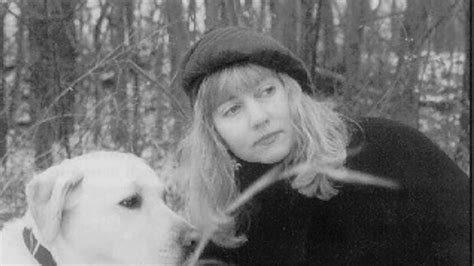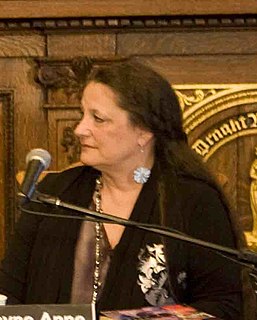A Quote by Annie Dillard
When you write, you lay out a line of words. The line of words is a miner's pick, a wood carver's gouge, a surgeon's probe. You wield it, and it digs a path you follow. Soon you find yourself deep in new territory. Is it a dead end, or have you located the real subject? You will know tomorrow, or this time next year.
Related Quotes
A lot of people think they can write poetry, and many do, because they can figure out how to line up the words or make certain sounds rhyme or just imitate the other poets they've read. But this boy, he's the real poet, because when he tries to put on paper what he's seen with his heart, he will believe deep down that there are no good words for it, no words can do it, and at that moment he will have begun to write poetry.
It's Richard Kelly's brilliance, because he led me to Donnie Darko performance. He wanted sincerity, he didn't want it to be one color, and he made me go vulnerable, and I think that's why it works. When you can get all those different colors and levels in one line. Time Out New York voted it "Best Line Of The Year" - which is crazy, because how many words is it? "Sometimes. I. Doubt. Your. Commitment. To. Sparkle. Motion." Eight words. It's crazy.
Each time I write, each time the authentic words break through, I am changed. The older order that I was collapses and dies. I lose control. I do not know exactly what words will appear on the page. I follow language. I follow the sound of the words, and I am surprised and transformed by what I record.
I want to write something so simply about love or about pain that even as you are reading you feel it and as you read you keep feeling it and though it be my story it will be common, though it be singular it will be known to you so that by the end you will think— no, you will realize— that it was all the while yourself arranging the words, that it was all the time words that you yourself, out of your heart had been saying.
There are just long gaps where I can't find a point of insertion, I can't find a good opening line, I can't find a mood that I want to write into. But once I do, once a line falls out of the air, or I get a little inkling of a subject and I recognize that, it's like the sense that a game has started.
The single most important technique for making progress is to write ten words. Doesn't matter if you're badly stuck, or your day is completely jam-packed, or you're away from your computer - carry a small paper notebook and write a sentence of description while you're waiting on line at a coffee shop. I think of this as baiting a hook. Even if you have a few days in a row where nothing comes except those ten words, I find that as long as you have to think about the novel enough to write ten words, the chances are that more will come.
Sound words can't be understood through formal study of the language alone. They're felt when you immerse yourself in the culture or lifestyle that becomes a part of you. The Japanese language is abundant with onomatopoeia. Even though I've lived in Japan a long time, sound words are still an uncertain territory. And I think new words are being created every day. Even when I don't know a word I can sometimes connect it to a meaning using the sensations produced by the sounds, which feels like I'm playing with words.
I thought that my voyage had come to its end at the last limit of my power, that the path before me was closed, that provisions were exhausted, and the time come to take shelter in a silent obscurity, but I find that thy will knows no end in me, and when old words die out on the tongue, new melodies break forth from the heart, and where the old tracks are lost, new country is revealed with its wonders.


































